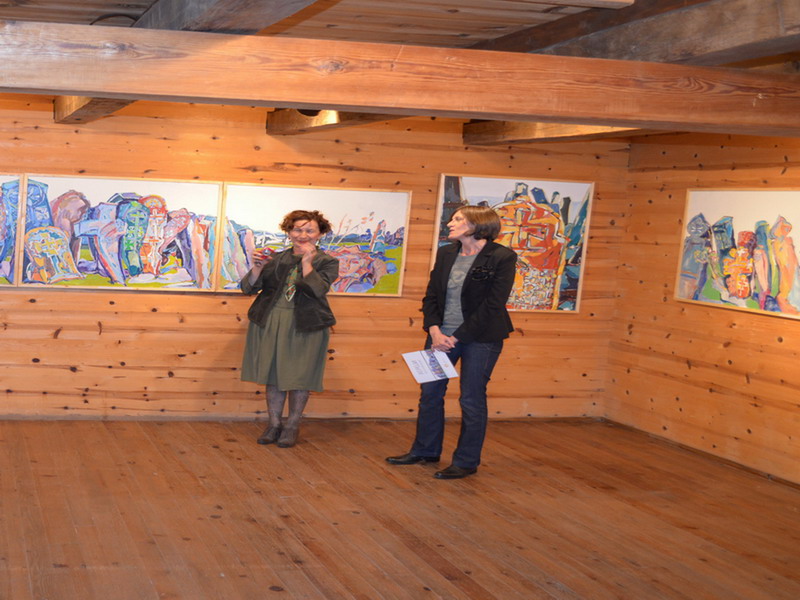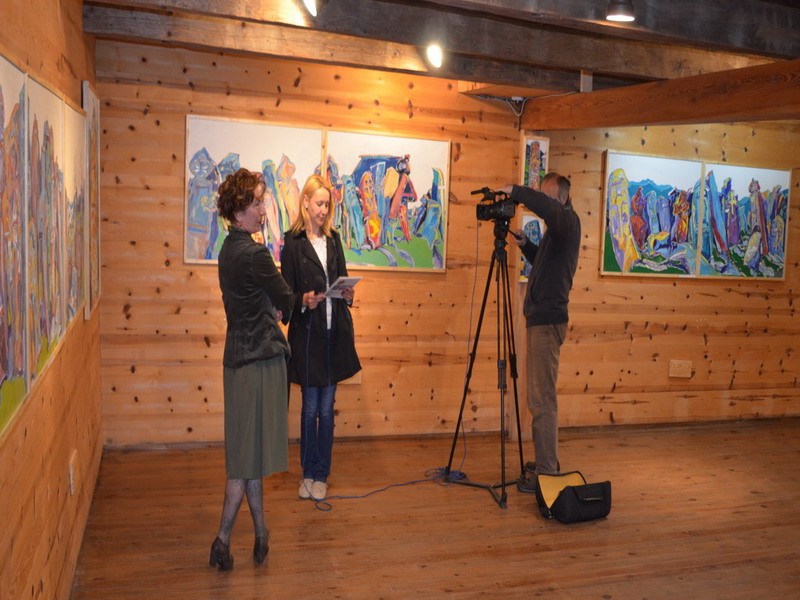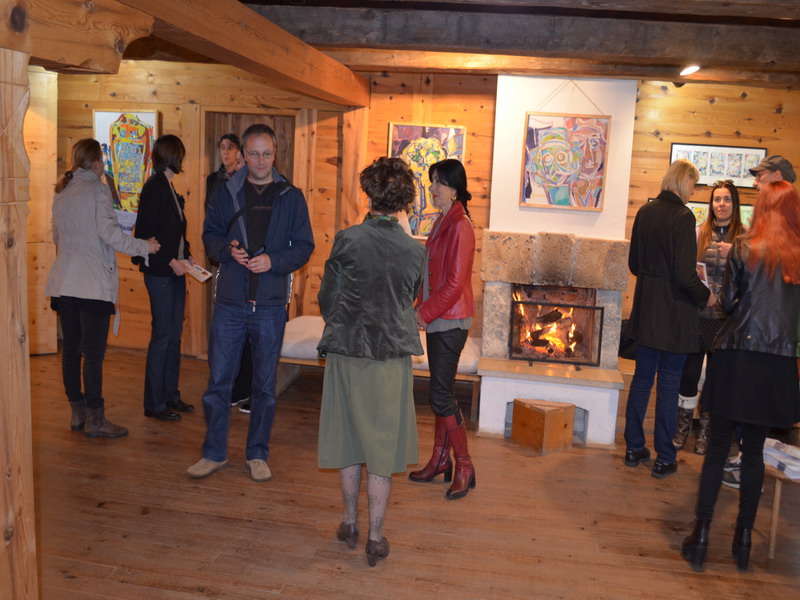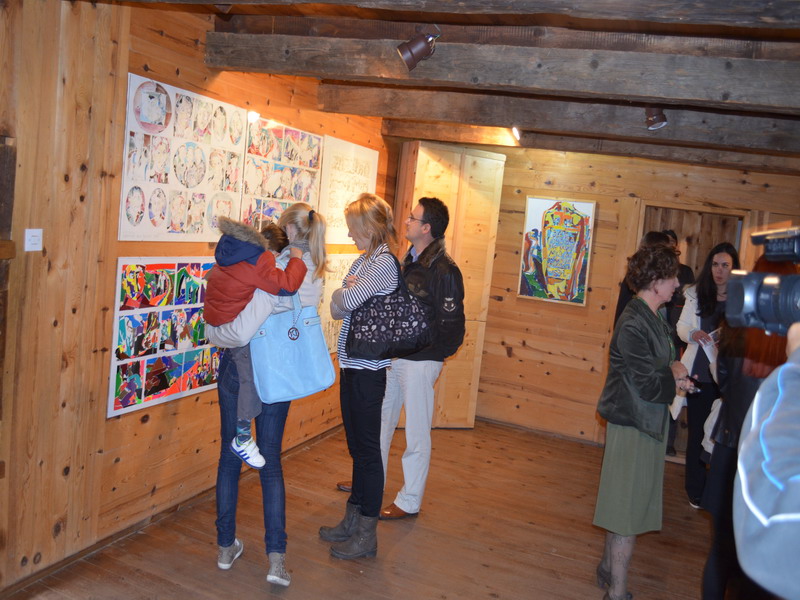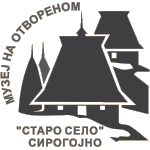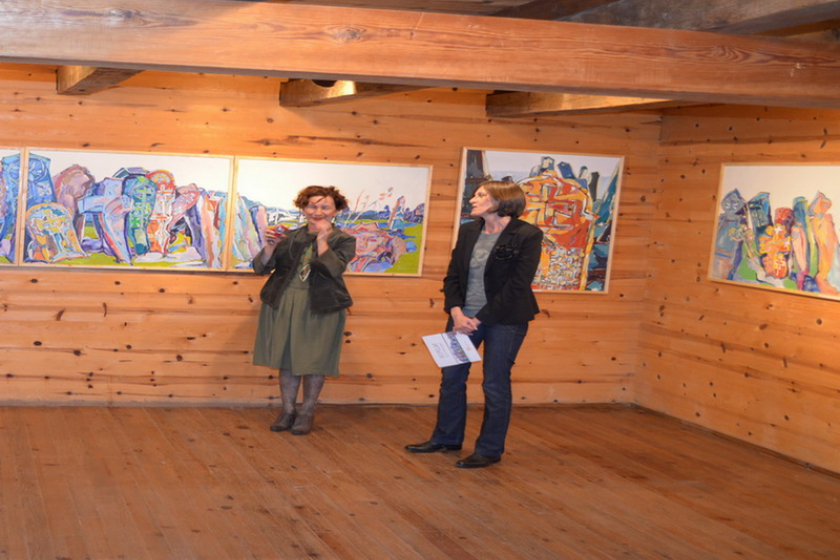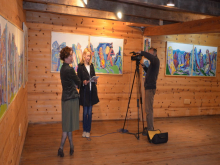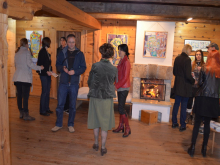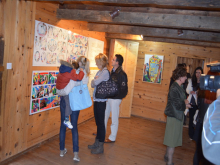An exhibition titled "Heroes" by Miljana Drašković, a painter from Užice, was opened on Thursday May 28, 2015 at the Open-air Museum "Old Village" in Sirogojno. The exhibition brings together two thematic cycles that the painter carefully dealt with over the past few years.
The first cycle is dedicated to the Great War, and the second, called "Revelation" to the First and the Second Serbian Uprising. The cycles are not only illustrations of historical narrative, but the essence resulting from them - behind these two issues, there lie deep connection and meaning, allowing the audience perception of the painter's creative path.
Miljana’s reliance on own cultural heritage has opened an inexhaustible field of inspiration and possibility of expression in a variety of techniques. Thus, watercolours, drawings, collages, oil paintings and acrylics fit into a broader ideological conception, conveying to us, each in its own way, pieces of the heroic past spirit. Known for her expressiveness, strong, distinctive colours and ability of skilful combining of hues and nuances, in the cycle dedicated to the Great War, Miljana presented herself to the audience through masterful and skilfully executed drawing.
Portrayed characters from King and Regent, over Radomir Putnik, Živojin Misić, Stepa Stepanović, Milunka Savić to a Serbian soldier and a man, although airy like stained glass, they radiate strength, courage, endurance. For Miljana, they are, without exception, sublime, timeless heroes.
The second part of the exhibition, already by its title -"Revelation" indicates Miljana’s reflection and desire to show her own perception of life and death, courage and cowardice, good and evil ... It has, by some unwritten rule, been reflected on poetics and iconography of paintings - it is about poetic experience of "eternal homes" of dead insurgents, about direct observation of gravestones which has also been directly reported - expressive in colour and form, released in drawing and move, swaying as in a game or dance - revealing Miljana’s glorification of life and her personal attitude towards death in which there is no fear and dark thoughts for, said in her own words, "in the spiritual sense, the thought of death can sometimes mean deliverance."
In the year of marking two significant jubilees – a hundred years since the beginning of the First World War and two hundred years since the outbreak of the Second Serbian Uprising, we can freely say that, through these two cycles, Miljana Drašković decently and with respect protracted Serbian heroes of the Great War and uprisings, primarily her grandfather Tihomir Djoković, a soldier killed in the Battle of Mačkov kamen.
